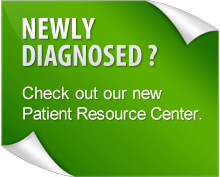Finding information
You have just been diagnosed with dysautonomia — or maybe you know someone else that was just diagnosed with dysautonomia. Either way you're probably pretty confused about it. So what do you do now? Well, if you're like most newly diagnosed patients you want to learn about your condition. Learning about your condition will empower you.
While searching for information online, please be aware that not all sources are created equal. Utilize your energy wisely. A wealth of misinformation about dysautonomia conditions exists on the Internet and can lead innocent patients down dangerous, destructive paths. Be very selective about your information resources. Turn to long-standing, professional organizations with experience, certification and noted medical endorsements.
Make sure to read DYNA's note on Finding Reliable Information.
A basic introduction to dysautonomia
Dysautonomia is a pretty big word. It is pronounced dis-auto-nome-eia.
Dysautonomia is a dysfunction of your autonomic nervous system. This means that the automatic things our bodies usually do may not be happening so "automatically." Obviously, the autonomic nervous system is pretty important to our bodies. It controls things like heart rate, blood pressure, digestion, body temperature regulation, endocrine system, and pupil dilation.
Most people are unaware of their autonomic nervous system working in its usual "involuntary" manner. It controls the body's systems "automatically" and thus healthy people usually take it for granted. When you have a dysfunction of this system you discover very rapidly that it is nothing to take for granted!
For more information about dysautonomia conditions, check out our About Dysautonomia Section.
Getting the right medical care
Medical professionals want to help their patients get well but not all healthcare professionals have the resources needed to diagnose/treat/guide and support dysautonomia patients. Given the complexity and demanding nature of these conditions, your local doctor(s) alone may simply not have the necessary time, experience, or knowledge to help you put your particular health puzzle together. Arranging a consult with a specialist who has long term and extensive experience can be quite beneficial and in the end can save you money, time, and frustration.
For information about developing your medical team, see Finding the Right Doctor for You.
Working towards recovery
It's important to remember that, while challenging, non-familial youth onset dysautonomia is not life-threatening. With the proper medical treatment, healthy life-style management, and determination, the great majority (90%) of youth-onset patients will completely recover and go on to lead full and satisfying lives. The remaining 10% of patients will very significantly improve and be able to resume fairly normal lives. Dysautonomia patients have control over certain aspects of their recovery process (drinking the right amount of fluids, consuming the necessary sodium, maintaining a proper sleep schedule, conducting self-help measures such as exercise, proper diet etc.). Follow the protocol established by your physician and you will succeed.
For information about working toward recovery, read about the importance of physical activity.
Additional resources
Make sure to check out our Resources section for some useful tools for monitoring your condition as well as additional sources of information like medical and news articles.
DYNA's Awareness Series Informational Brochures are a great source of information and are customized for patients, parents, friends, physicians, and schools.
More New Patient Links:
Dysautonomia Forms, Treatments and Prognosis
Glossary of Dysautonomia Terms
Dealing with Insomnia





